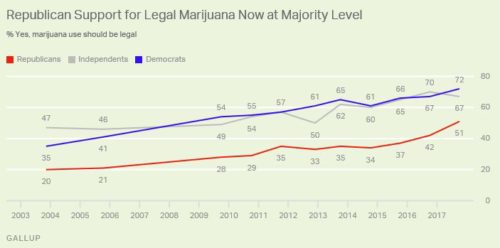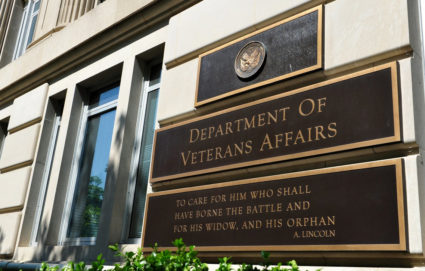Gallup recently conducted a new poll which showed public support for legalizing marijuana at an all time high of 64%.
Interestingly, a majority of Republicans now support legalizing marijuana which was not the case in last year’s Gallup poll. 51% of Republicans now say marijuana should be legalized. That number was at 42% last year indicating a substantial trending shift in Republican support for legalizing marijuana.
When Gallup first asked this question in 1969, 12% of Americans supported the legalization of marijuana use. In the late 1970s, support rose to 28% but began to retreat in the 1980s during the era of the “Just Say No” to drugs campaign. Support stayed in the 25% range through 1995, but increased to 31% in 2000 and has continued climbing since then.
In 2013, support for legalization reached a majority for the first time after Washington and Colorado became the first states to legalize the recreational use of marijuana.
Results for the Gallup poll were based on telephone interviews conducted October 5-11, 2017, with a random sample of 1,028 adults, aged 18 and older, living in all 50 US states and the District of Columbia.
Read more about the Marijuana Gallup Poll.


